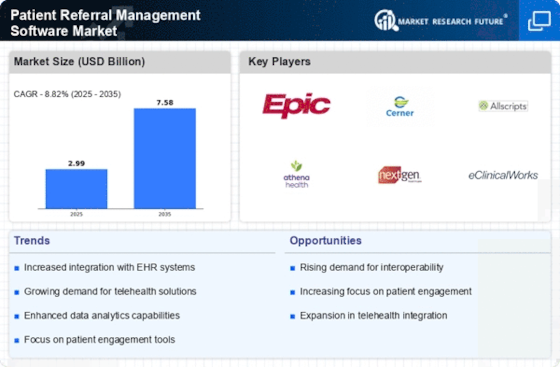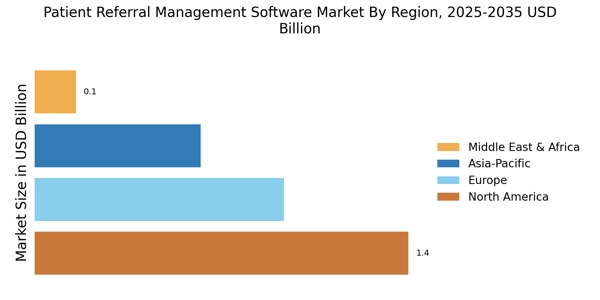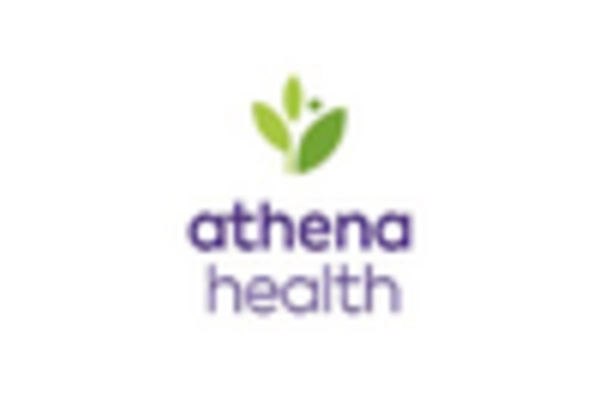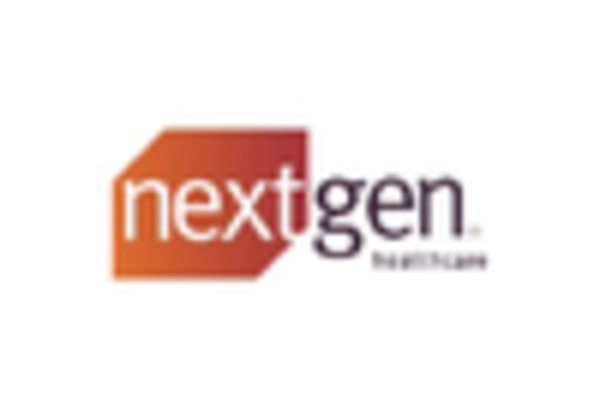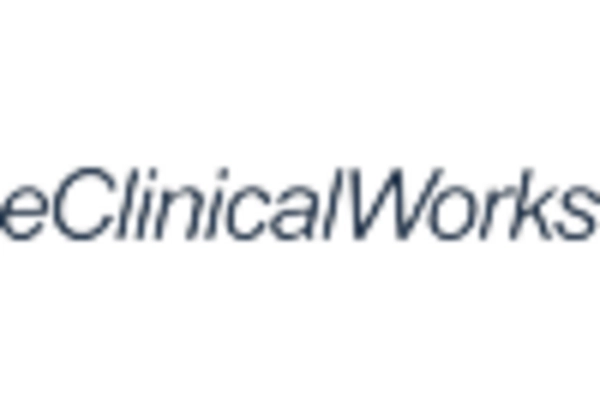Rising Focus on Value-Based Care Models
The shift towards value-based care models is significantly influencing the Patient Referral Management Software Market. Healthcare providers are increasingly incentivized to deliver high-quality care while managing costs effectively. Patient referral management software plays a crucial role in this transition by ensuring that patients are referred to the most appropriate specialists based on their specific needs. This not only enhances patient outcomes but also reduces overall healthcare expenditures. As value-based care continues to gain traction, the demand for software solutions that facilitate efficient referral processes is expected to rise, indicating a positive trend for the market.
Growing Emphasis on Patient-Centric Care
The Patient Referral Management Software Market is witnessing a growing emphasis on patient-centric care. Healthcare providers are increasingly recognizing the importance of involving patients in their care journey, which includes the referral process. Software solutions that prioritize patient engagement and communication can significantly enhance the referral experience. For example, features such as appointment reminders and educational resources about specialists can empower patients to make informed decisions. As the healthcare landscape shifts towards a more patient-centered approach, the demand for referral management software that supports this paradigm is expected to increase, driving market expansion.
Technological Advancements in Healthcare IT
Technological advancements are a driving force in the Patient Referral Management Software Market. Innovations such as artificial intelligence and machine learning are being integrated into referral management systems, enhancing their capabilities. These technologies enable predictive analytics, which can identify patients who may require specialist care before they even seek it. Furthermore, the integration of telehealth services within referral management software is becoming increasingly prevalent, allowing for remote consultations and follow-ups. As healthcare organizations adopt these advanced technologies, the demand for sophisticated referral management solutions is likely to grow, shaping the future of the market.
Increased Demand for Efficient Care Coordination
The Patient Referral Management Software Market is experiencing heightened demand for efficient care coordination among healthcare providers. As healthcare systems evolve, the need for seamless communication and collaboration between primary care physicians and specialists becomes paramount. This software facilitates timely referrals, ensuring that patients receive appropriate care without unnecessary delays. According to recent data, approximately 30% of patients experience delays in receiving specialist care due to inefficient referral processes. By streamlining these processes, Patient Referral Management Software Market can significantly enhance patient outcomes and satisfaction, thereby driving market growth.
Regulatory Compliance and Quality Improvement Initiatives
Regulatory compliance is a critical driver in the Patient Referral Management Software Market. Healthcare organizations are increasingly required to adhere to stringent regulations aimed at improving patient care quality and safety. Software solutions that assist in managing referrals help organizations meet these compliance requirements effectively. For instance, the implementation of referral management systems can lead to a reduction in unnecessary tests and procedures, aligning with quality improvement initiatives. As healthcare providers strive to enhance their compliance with regulations, the demand for robust referral management solutions is likely to increase, thereby propelling market growth.


